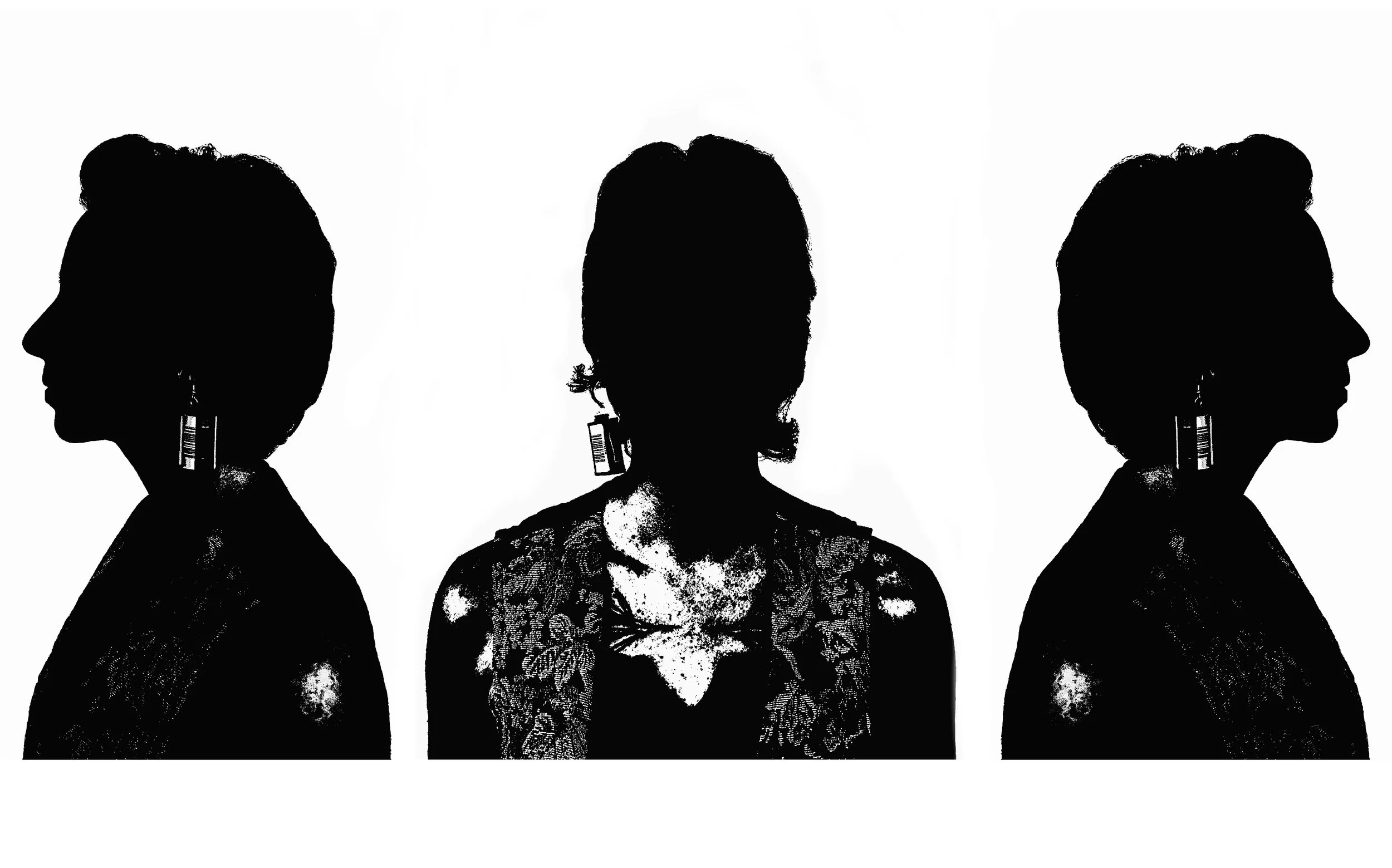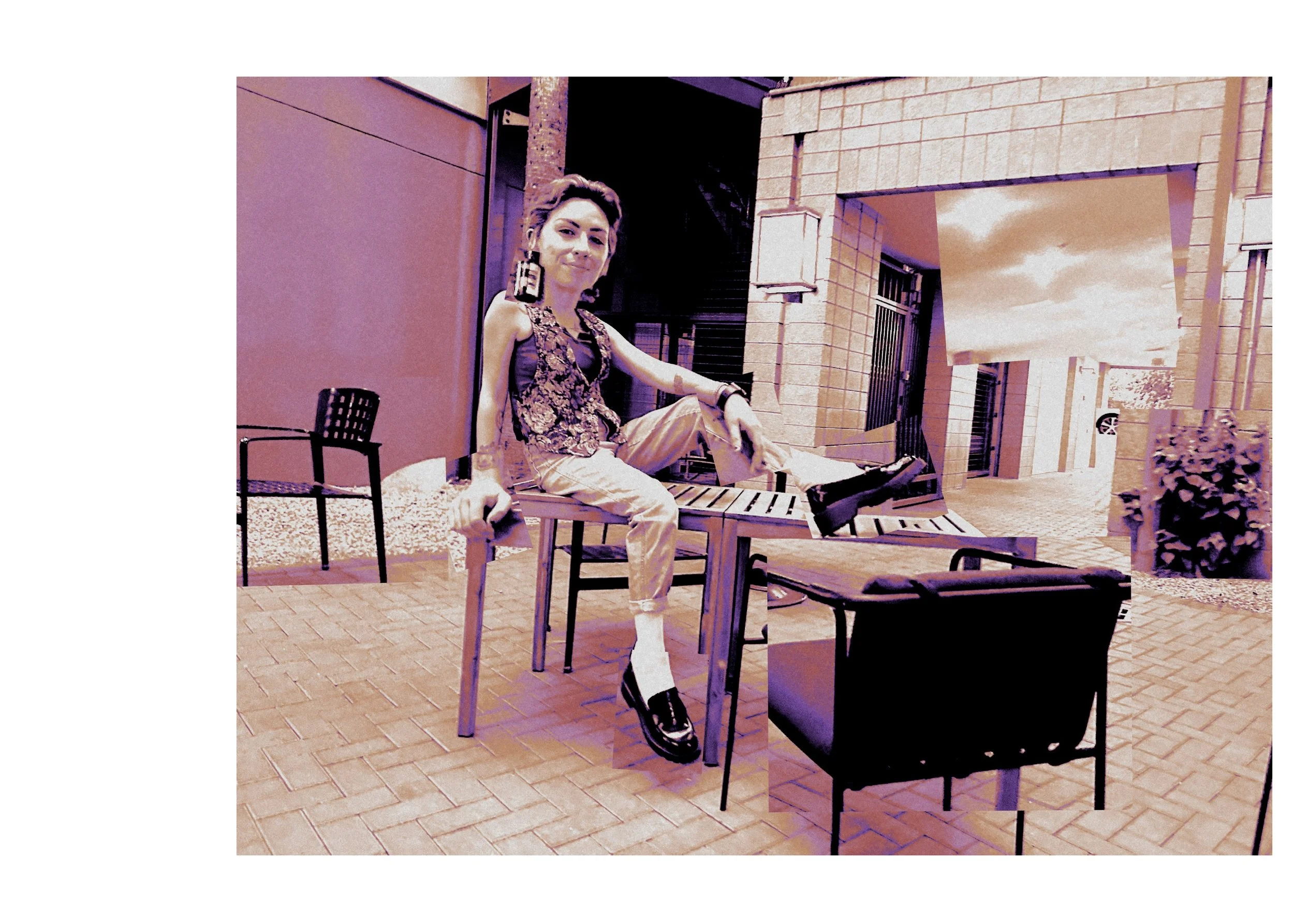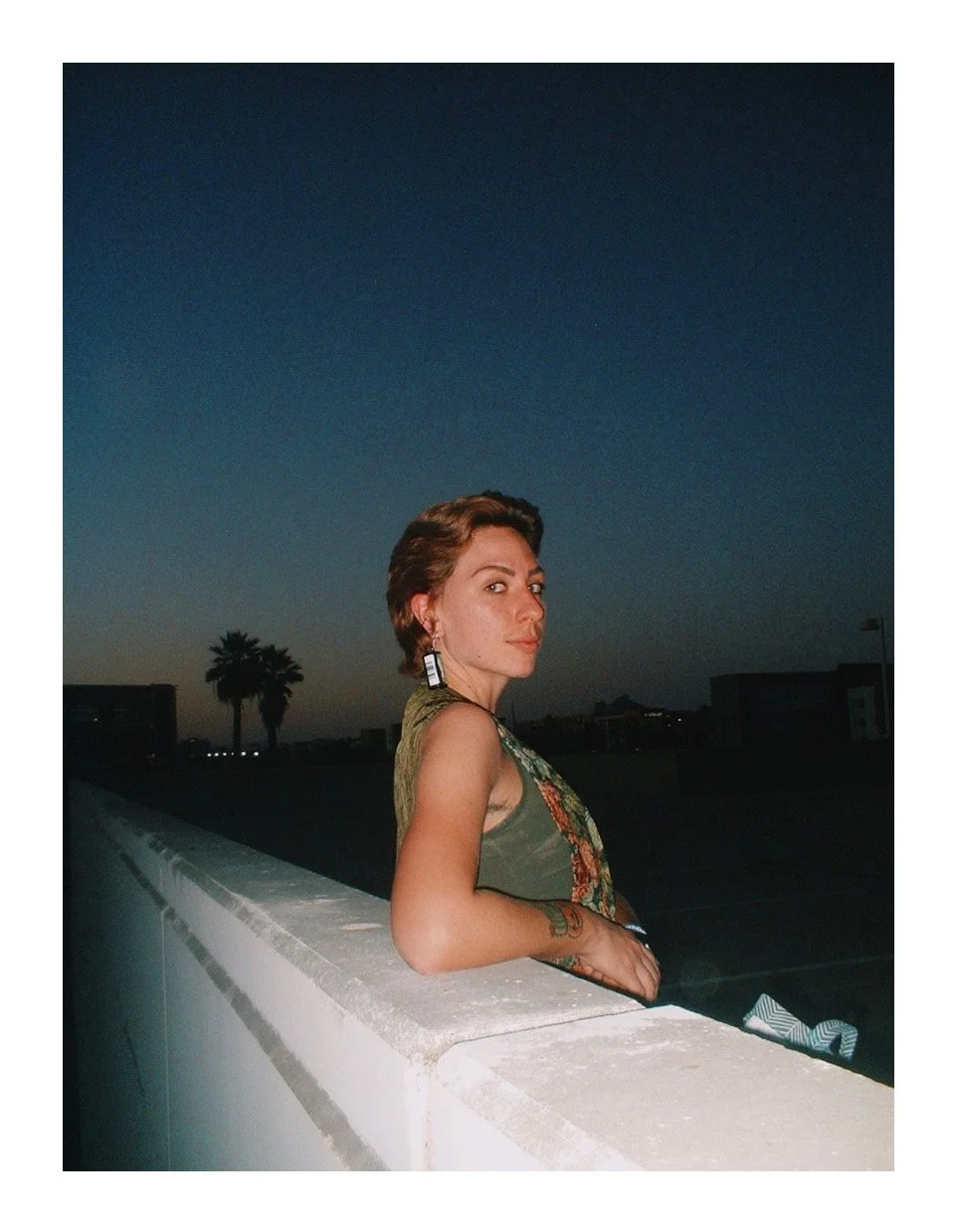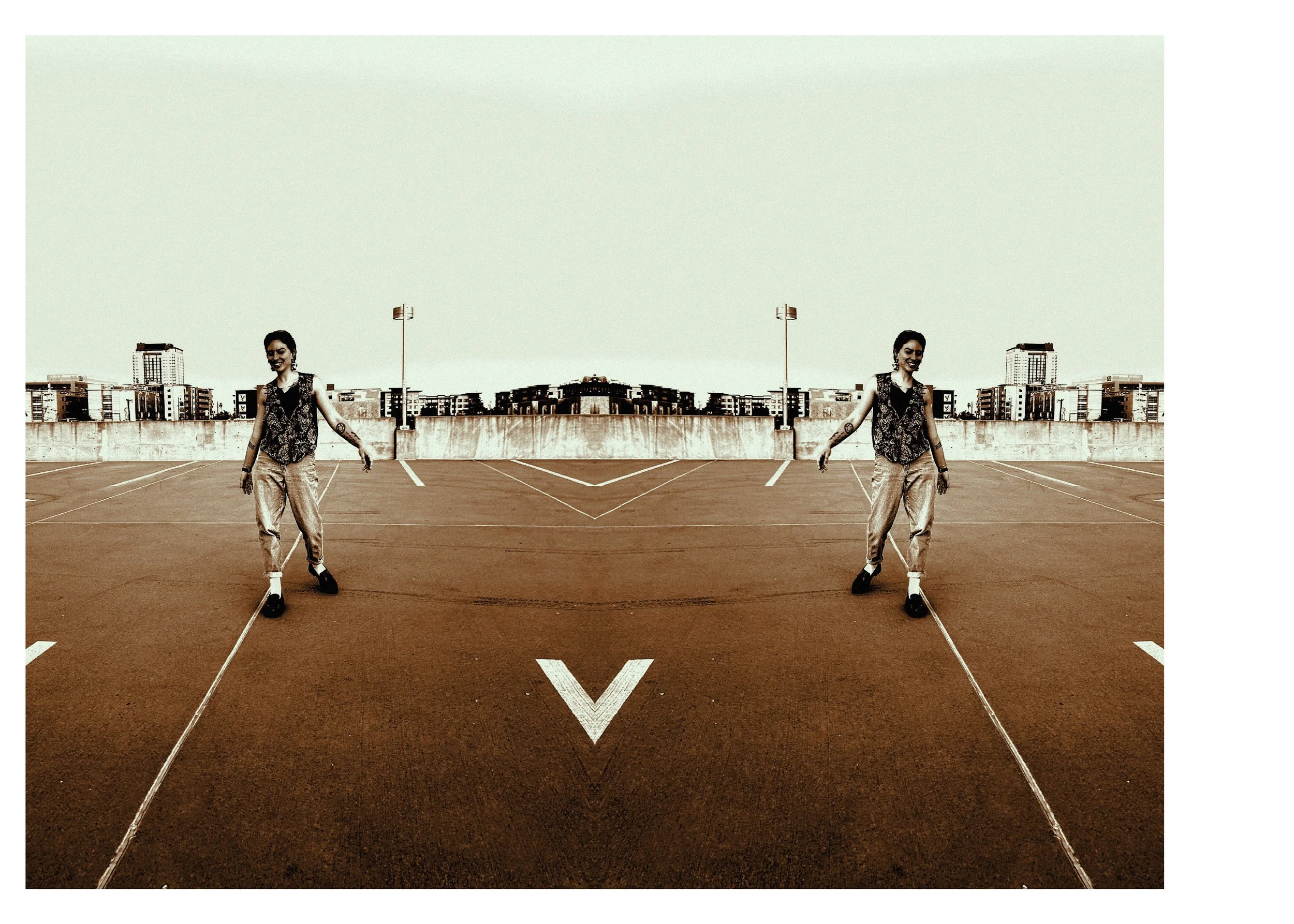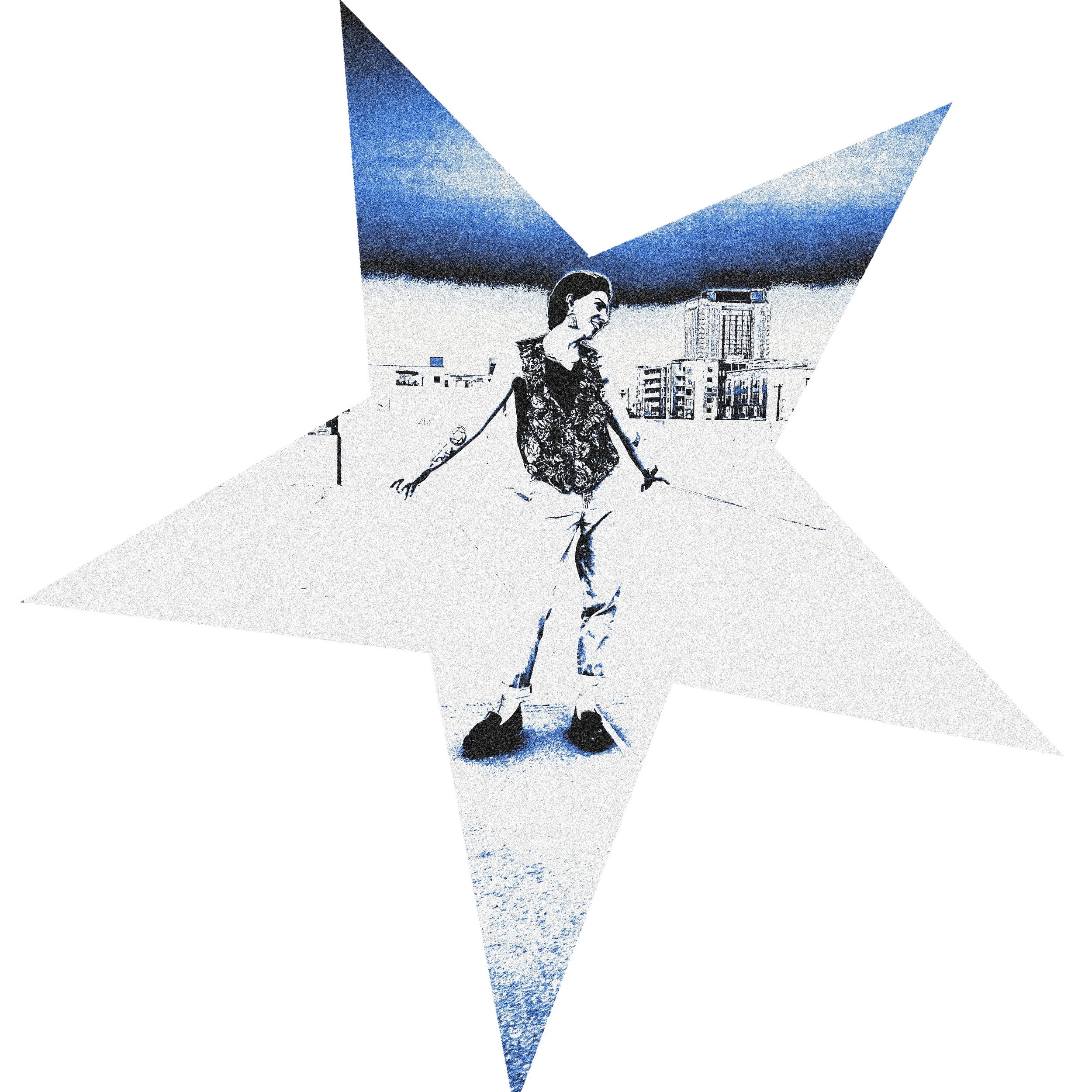In Conversation With Summer Raine Young: “Photography”
“IN CONVERSATION WITH” IS A CONVERSATIONAL INTERVIEW SERIES WHERE WE SIT DOWN WITH CONTEMPORARY ARTISTS AND DISCUSS TOPICS THAT ARE IMPORTANT TO THEM.
(All conversations are recorded, and transcribed by BrassTuna.)
This conversation has been edited for length and clarity
Summer Raine Young (any/all pronouns) is a fine art photographer from Baltimore, MD, currently living in Phoenix, AZ. Self-exploration through photography has become a necessity in further understanding their own identity and has given them the confidence to take up space as a queer person. Using themselves as a model allows for honesty and vulnerability to become more relevant and personal. As someone who manifests in their own thoughts, body language becomes a crucial way to portray their interpretation of matters that sometimes cannot be achieved through words, which gives Young a sense of control. Their cats, Tortilla and Guacamole, freely enter the frame as they please, and have come to represent the comfort Young needs throughout their journey of self discovery.
Young earned their Bachelor of Arts in Photography from the Maryland Institute College of Art in Baltimore, MD in May 0f 2019. They are currently an artist member of Eye Lounge Gallery in Phoenix, AZ.
(shot on iPhone by BrassTuna)
BrassTuna: Hello summer, thank you for joining me today!
Would you mind telling our readers a bit about yourself?
Summer: “Sure!”
“Well, I moved to Arizona about 2 years ago from Baltimore, where I went to art school.”
“I started doing photography in high school to kind of get out of my house because I just needed some type of distraction. I would literally just photograph bugs in my backyard ,,, and it was just something to keep my brain occupied.”
“Then once I started going to school and learned about photography as an art form, it kind of became a very therapeutic way for me to process my own life and the things that I was going through ,,, and accepting my queer identity, and things like that ,,, that I didn’t know how to put words to.”
BrassTuna: So do you feel like your photography was kind of your “gateway” into understanding yourself?
Summer: “Totally!”
“Like,,, I was very quiet, and I didn’t know the feelings that I was ‘having,’ and I didn’t know a lot of queer people.”
“My brother actually came out when we were in high school together, which was super helpful to me to like feel comfortable to take that step in coming out, but when it came to coming out it was like: ‘well how do I understand this now?’”
“So when I kind of shifted photography from being this ‘fun hobby’ ,,, well once I had to do a whole project on self-portraiture, and had to turn the camera on myself, it showed me that I can use my body to emote things that I didn’t have words for.”
(shot on iPhone by BrassTuna)
BrassTuna: Today’s topic is all about photography.
The ways in which its used, and perceived, and how using different mediums can enhance or change the story.
But first, we are going to talk about "the photographic identity.”
Would you mind starting us off?
Summer: “Ya, kind of as I mentioned earlier,,,”
“The first time I turned the camera on myself was for a self-portrait project.”
“I remember I was like ‘I do not want to do this, I don’t know what I’m going to do,’ but then I kind of was like:
‘how can I make this into something I want to enjoy, and I can make this a deeper project on myself.’ “
“And that was the first series that I did about exploring my queer identity. I always identified as a lesbian, but I sort of felt this gender-fluidity coming out, but even at that time, about 7 or 8 years ago, there wasn’t really a lot of talk about gender vs sexuality.”
“So it was the first time that I ,,, I mean I look back on the photos now and they are so on the nose *haha* it was like, me posing with my clothes and it was dresses vs button ups.”
BrassTuna: Wait because I kind of love that *haha*
Summer: “It really helped me because it was the start of like ‘Oh my photography CAN be about my life, and that’s ok,’”
“I once had a professor who told me that I was self-centered ,,, but in reality, those photos were like the first time that I was able to process who I am without having to try to put words to it.”
“I was able to feel it and emote it in a way I could better understand myself.”
BrassTuna: So you speak a lot about your work then, but do you feel like your work now still ties in a lot of those ideas of self and discovery?
Or do you feel it’s in the work inherently, and not so much pushed to the front?
Summer: “I think it’s,,,”
“I almost sort of became obsessed with self-portrait work, and not in a ‘I’m so obsessed with myself’ way, but in a way of understanding myself.”
“I was doing a lot of, just photographing myself in the spaces that I was living in.”
“Because there was such a long time where I didn’t feel worthy taking up space even in my own household.”
“Not that my parents ever made me feel that way but I had this mentality, that like ,,, its really kind of sad but ,,, ‘am I worth taking up this space as a queer person?’
And I think a lot of queer people do relate to that, whether parents or family have taught them that or not.”
“So when I first moved out on my own, I kind of became obsessed with photographing myself in every inch and corner of these spaces I was living in because I wanted to feel worthy of it.
And so, I kind of just like kept that going.
Whether or not it’s about my body or not, I do feel that my work is still inherently queer, even if it is on the nose or not.”
BrassTuna: I feel like there are a lot of artists today who feel like they have to put themselves in a box, and they have to stay there.
Whereas for many of us queer artists, we put ourselves in so many different boxes, because all of our life we’ve been forced to remain in ONE box.
And from an artist's point of view, I look at it like “Why should we have to limit ourselves?”
I look back on when I was younger, and my parents accepted me and my queerness, yet it felt like I had this understanding of having to fit in a singular box.
Summer: “And for many of us we were taught that being queer was ‘not the norm,’ or that’s not how it’s supposed to be.
So even if we are accepted in the home, it like ,,, in the outside world not everyone feels that way.”
“And within the last couple of years I realized that I was not making artwork that was focused primarily on ‘being in a gallery,’ I felt like I just had to make work that was about my life.
I felt like ‘Well maybe I do just want to go outside and just take pictures of whatever, because it makes me happy.’
It’s not so much about ‘where is this going to end up,’ but how does it make me feel in the moment?”
“And I feel like now I can differentiate those works.”
I’m happy to make work with the intention of it being viewed by the world but also, I can make work where I photograph my family, or friends, or loved ones, and it may never see the light of day.
I think it’s important for artists to understand that as well.
BrassTuna: Ya, and I definitely think that goes for every medium of art as well.
I feel like art is very healing, but going into every work with the biggest intention being, showcasing it with the world, can hinder that feeling of it being a healing process.
(shot on iPhone by BrassTuna)
BrassTuna: For our next topic, I want to shift our conversation to mediums.
I feel that sometimes the format or medium we work with can completely change the narrative and feel of the work.
Do you feel that there is a difference when it comes to storytelling in your work when you shoot digital vs film?
Summer: “That’s a good question. I tend to use film,,,”
“Well, when I was in college we had to take film classes, so I was kind of doing a bit of both.
But I do feel that with film, having the ability to photograph something without being focussed on the instant result ,,, it lets you be in the moment a bit more.”
“I don’t know if the content of my work really is different between the digital and the film.
I think when I'm doing a lot of self-portraits, it is more convenient to do digital ,,, but when I do work on film,
I do feel like no matter what it is, I feel this connection to the physicalness of it.”
“It’s like,,,
I really think about what I’m going to shoot on film, because, know its expensive and takes a lot of resources, and you have to do so much more work to get the results.
So I think it allows me to hone in on something a bit more. “
“As for digital I find myself not really using it as much, just because ,,, I feel like the film allows me to think more about what I’m doing.”
BrassTuna: I feel like with film, it’s a lot about the process of doing it. Shooting, developing, printing, etc.
And that in and of itself is a separate art form.
There’s something about it that involves self just as much as taking the photos.
Summer: “And with digital there isn’t as much ‘hands-on,’
You kind of just can press a button and then put it on the computer. And it’s there.”
“And I just recently started developing my film at home, and I get so excited every time.
Like taking my film out of the tank and seeing the pictures, it never gets old for me.”
“That feeling of seeing your physical images, like I created this with my hands.
And you feel like you really worked for those images.”
“Of course, digital is valid, but being able to go through all these steps, and reteaching myself all the little parts of film that I did in college, was very therapeutic for me.”
BrassTuna: There’s something about film that when you have it you know it’ll last forever.
Yet most of my work is in digital because it’s just so easy. A lot of the time the camera is doing all the heavy lifting for me.
Film always makes me feel like I’m being brought back down to earth.
Sometimes I feel like film helps tell my stories and narratives clearer, but also so does digital so I don’t know lol.
Summer: “I feel a lot of what you’re saying, it’s kind of like ,,, whenever I shoot film it takes me back to the history of photography.”
“It really makes me think about how photography was not seen as an art form for a very long time, it was seen as a science.”
“And yes there is science to it, but there is such an artistry to it.”
(shot on iPhone by BrassTuna)
BrassTuna: For our last topic today I want to talk about photography in the art space.
I have a lot of opinions and thoughts on this topic, but would you mind starting us off?
Summer: “Ughhhh … *haha*
I do find that photography is not as sought after in museums, I think it’ll continue to hopefully get there one day.
You know, it still exists. “
“I do feel like there is still a bit of a distance of having to fight for our title.
Like, this is an art form.
,,,”
BrassTuna: I’m not sure what it is about the way photography is viewed, but it just feels to me like a lot of people disregard it as an art form.
Summer: “I think it kind of comes back to, y’know, everyone has a camera in their pocket, and that’s fine.
And I've seen beautiful pictures taken on iPhones.”
“But I think people do see that as “anyone can do it,” and that’s great.”
“It’s great that everyone has access to this art form. Everyone is seeing the world from their perspective. But I think the accessibility to photography, sometimes makes it viewed as ‘an easy thing.’
If you are able to make beautiful work using it, that is great. “
“But I do think there is something is beautiful about seeing photography in a museum because you are truly getting a snippet of someone’s real life and perspective. I don’t think it can get more vulnerable or beautiful than that.”
BrassTuna: That’s exactly why I enjoy photography so much.
When you work with a painting or a drawing, you are able to create anything in your imagination on any surface.
But when you’re working with photography you are forced to create something in the real 3D world.
Summer: Right, you are faring your actual life or someone else’s perspective.
I love when I can just feel someone ,,,, I don’t know I love when I can understand someone’s life through imagery.
It’s great to have an artist statement or something where you can a little bit of background information, but when I can feel so much emotion through a photograph it’s amazing.
BrassTuna: I will forever think photography is valid and I will forever love doing it *haha*
(shot on iPhone by BrassTuna)
BrassTuna: Well, we have reached the end of our conversation.
It’s really been so much fun getting to talk to you today, do you have any final thoughts or a message to our readers lol?
Summer: “Even if you’re not a “photographer” or artist, take all the pictures you want. Whether it be on your phone or a camera.”
“That is what you get to go back to and look at, and that’s a huge part of why I got into photography. My memory was always so bad, because of anxiety, so I valued pictures so much.”
“So if you think you’re taking too many photos or you’re being annoying by asking your friends and family to take pictures, let that go and do it.”
“You’re documenting your life.”
BrassTuna: Just take the picture!
,,,
Thank you again Summer for joining me today, its been a pleasure.
You can find Summer on their Instagram (@ summyraine ) as well as their website summerraineyoung.com
(Stay tuned for BrassTuna’s June installment of “In conversation with”)
